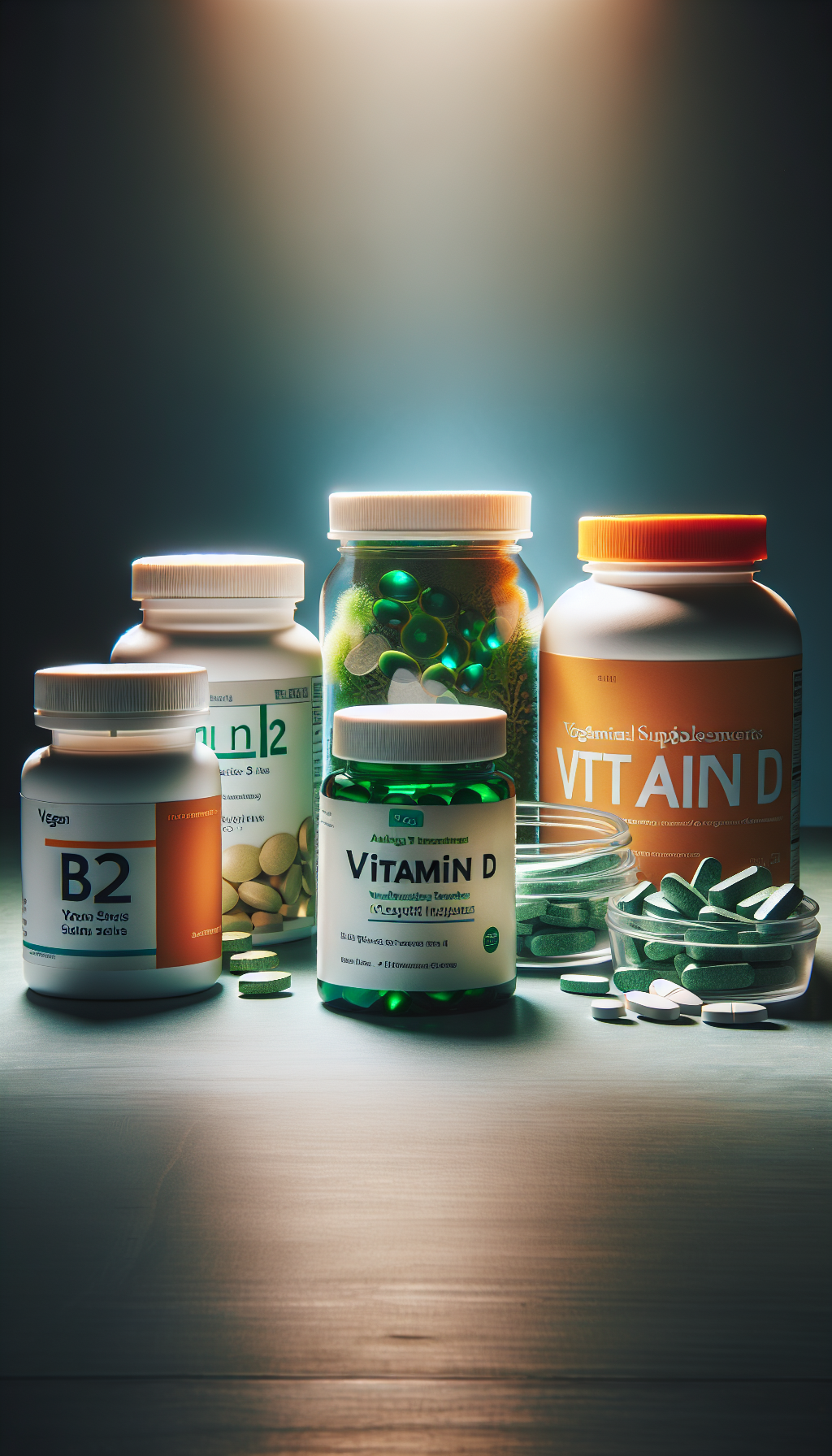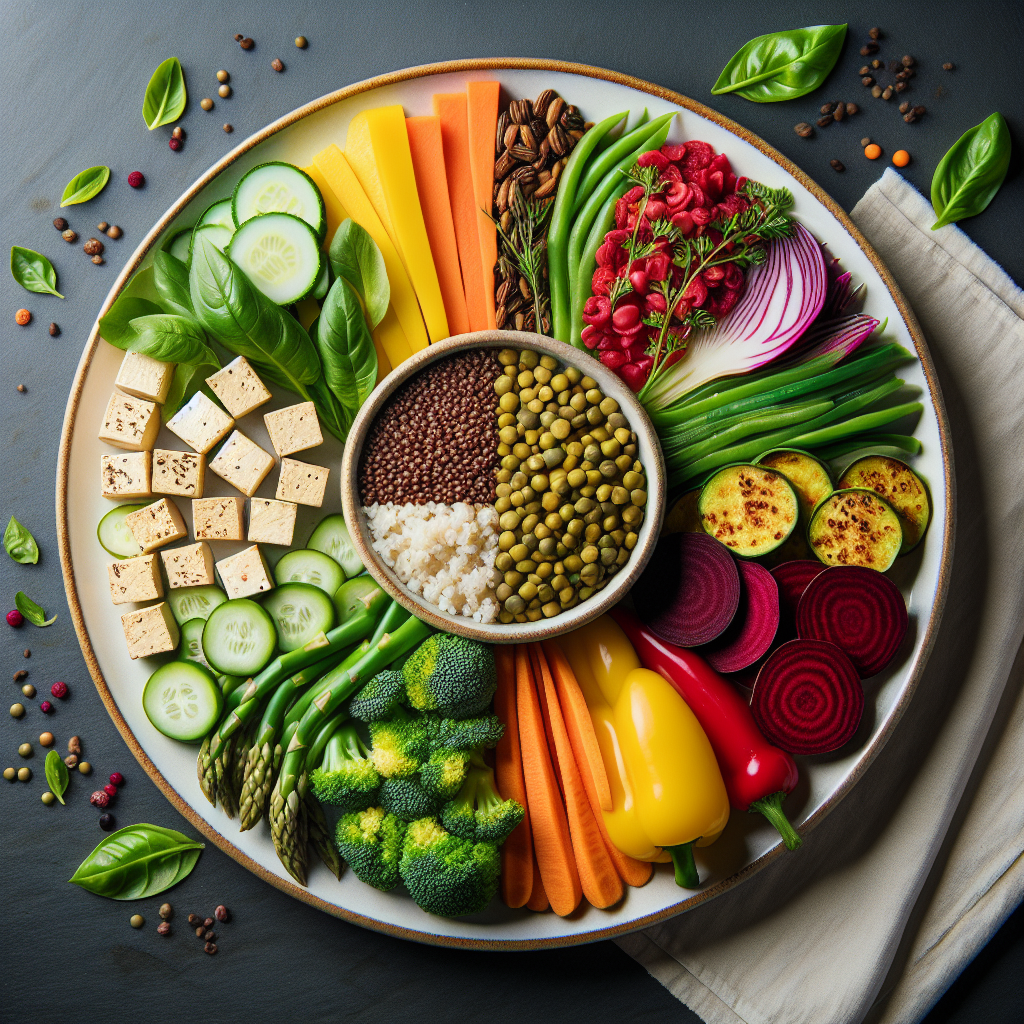Vegan diets, characterized by the exclusion of all animal products, have gained popularity for their health benefits and ethical considerations. However, as with any diet, there are potential pitfalls to be aware of—specifically, nutrient deficiencies. This article aims to guide you through the common nutrient deficiencies in vegan diets and how to navigate them effectively.
Understanding Nutrient Deficiencies in Vegan Diets
Nutrient deficiencies can occur in any diet, not just vegan ones. But due to the exclusion of animal products, vegans may be at higher risk for certain deficiencies. Key nutrients that are often of concern include vitamin B12, iron, calcium, omega-3 fatty acids, vitamin D, zinc, and iodine.
Vitamin B12: The Critical Nutrient
Vitamin B12 is a water-soluble vitamin that is vital for red blood cell formation, neurological function, and DNA synthesis. Since B12 is naturally found in significant amounts only in animal products, vegans must seek alternative sources or supplements. Fortified foods, such as plant-based milks and breakfast cereals, can provide some B12, but many health professionals recommend regular supplementation to prevent deficiency.
Iron: Essential for Oxygen Transport
Iron is another nutrient that is commonly associated with meat. However, it is also abundant in plant foods like lentils, chickpeas, and pumpkin seeds. The key is to consume iron-rich plants alongside vitamin C-rich foods, such as citrus fruits or bell peppers, to enhance absorption.
Calcium: More Than Just Dairy
Calcium is crucial for bone health, and while dairy is a well-known source, it is not the only one. Leafy green vegetables like kale and bok choy, fortified plant milks, and tofu are excellent vegan sources of calcium. Find out more about bone health.
Omega-3 Fatty Acids: Not Just from Fish
Omega-3 fatty acids are critical for cardiovascular and brain health. Flaxseeds, chia seeds, and walnuts, as well as algae-based supplements, are vegan-friendly sources that provide these essential fats.
Vitamin D: The Sunshine Vitamin
Vitamin D is important for immune function and bone health. It can be synthesized in the skin through sun exposure, but depending on where you live, additional supplementation or consumption of fortified foods may be necessary.
Zinc: A Trace Mineral with Major Impact
Zinc is vital for immune function, DNA synthesis, and wound healing. It is found in nuts, seeds, and legumes, but phytates in these foods can inhibit absorption. Soaking or sprouting these foods can enhance zinc bioavailability.
Iodine: Crucial for Thyroid Health
Iodine is necessary for thyroid function, which regulates metabolism. Seaweed and iodized salt are good sources for vegans, but intake should be monitored to avoid excess or deficiency.
Strategies for Preventing Nutrient Deficiencies
Preventing nutrient deficiencies on a vegan diet involves strategic planning and a bit of knowledge. Here are some comprehensive strategies to ensure you’re getting all the nutrients you need:
Embrace Variety
A varied diet that includes a wide range of fruits, vegetables, whole grains, nuts, seeds, and legumes is the cornerstone of healthful vegan nutrition. This diversity ensures a broader spectrum of vitamins and minerals.
Consider Fortification and Supplementation
Fortified foods and dietary supplements can fill in the gaps where your diet may fall short. Explore the role of supplements in a vegan diet.
Focus on Food Pairings
Pairing certain foods can enhance nutrient absorption. For example, consuming vitamin C with iron-rich plant foods or including sources of healthy fats with meals to assist with the absorption of fat-soluble vitamins.
Monitor Your Health
Regular check-ups with a healthcare provider, including blood tests, can help detect any deficiencies early on. This ensures that you can adjust your diet or supplement regimen as necessary.
Educate Yourself
Knowledge is power when it comes to nutrition. Resources such as the Vegan Society and the Academy of Nutrition and Dietetics provide valuable information on meeting nutrient needs on a vegan diet.
High-Quality External Resources
For further reading and to support the points made in this article, consider exploring these niche and specific resources:
- The Vegan Society’s Nutrition Overview provides detailed guidance on vegan nutrition and how to meet your dietary needs without animal products.
- The Academy of Nutrition and Dietetics offers a comprehensive look at vegetarian and vegan diets, including tips for meal planning and nutrient considerations.
- For an in-depth look at omega-3 fatty acids and their sources, the National Institutes of Health provides a fact sheet that includes information relevant to vegans Omega-3 Fatty Acids.
Incorporating Supplements into a Vegan Lifestyle
Supplements can play a key role in a vegan diet, helping to prevent nutrient deficiencies and support overall health. Here are some insights into incorporating supplements into your vegan lifestyle:
B12: A Vegan Essential
Vegan health experts universally recommend vitamin B12 supplementation. Options include daily doses in pill form, weekly doses, or even less frequent high-dose supplements. It’s important to choose a form that fits your lifestyle and ensures consistent intake.
The Benefits of Probiotics
Probiotics can support digestive health, which is crucial when consuming a high-fiber vegan diet. Learn about the safety and benefits of probiotic supplements.
Herbal Remedies and Drug Interactions
If you’re considering herbal supplements, be mindful of potential drug interactions. Understanding drug interactions with herbal remedies is essential for maintaining a safe supplement regimen.
Personalized Nutrition
Personalized nutrition takes into account individual differences in diet, lifestyle, and genetics. For vegans, this means tailoring supplement use to your specific needs, which might include additional nutrients like iodine or zinc.
Concluding Thoughts on Vegan Nutrition
Vegan diets can be nutritionally complete and offer numerous health benefits, but they do require careful planning to avoid potential nutrient deficiencies. By embracing a varied diet, considering fortification and supplementation, focusing on food pairings, monitoring your health, and educating yourself, you can thrive on a vegan diet.
Remember, nutrition is a personal journey, and what works for one person may not work for another. Consulting with a registered dietitian who specializes in plant-based nutrition can provide personalized guidance to ensure your vegan diet is meeting all your nutritional needs.
As the vegan population grows, so does the body of research and resources available to support this lifestyle. By staying informed and proactive about your nutrition, you can enjoy the benefits of a vegan diet while minimizing the risks.



